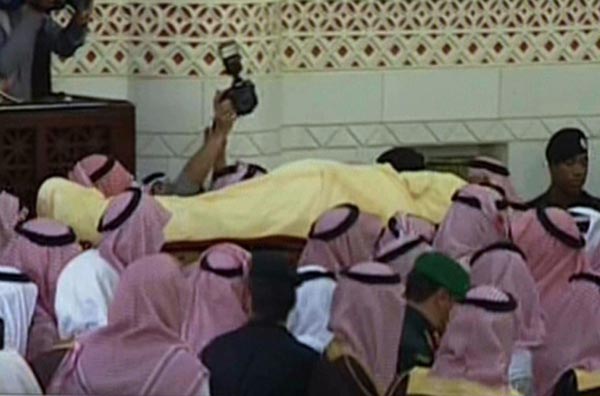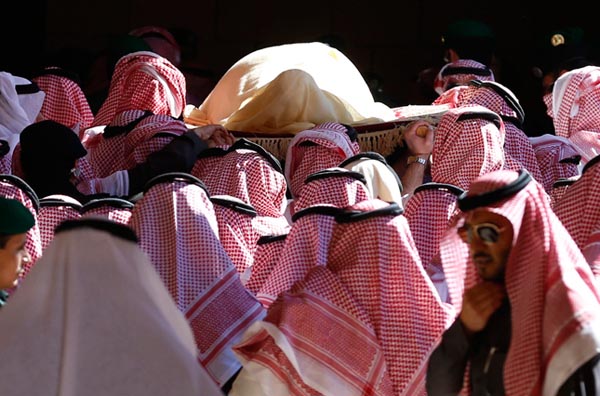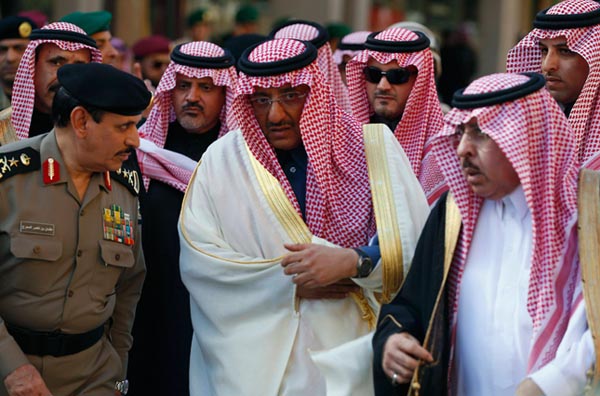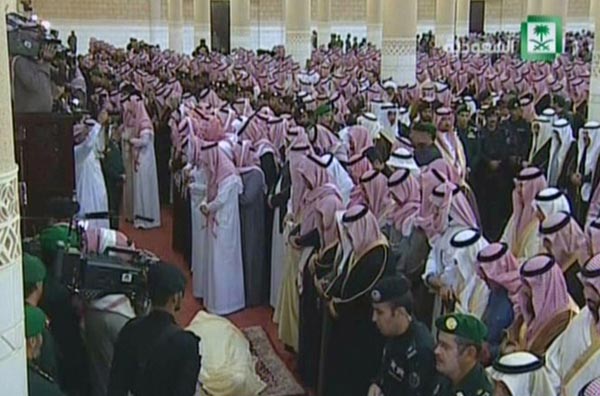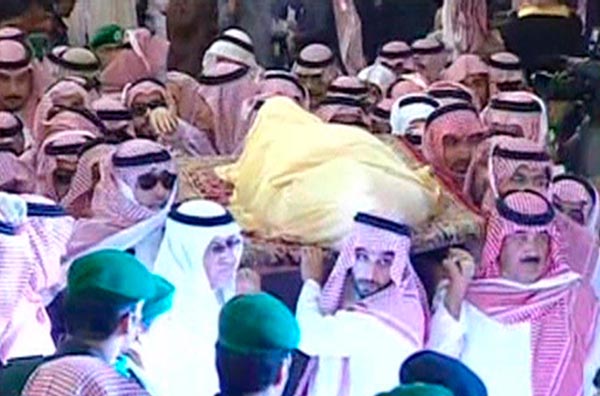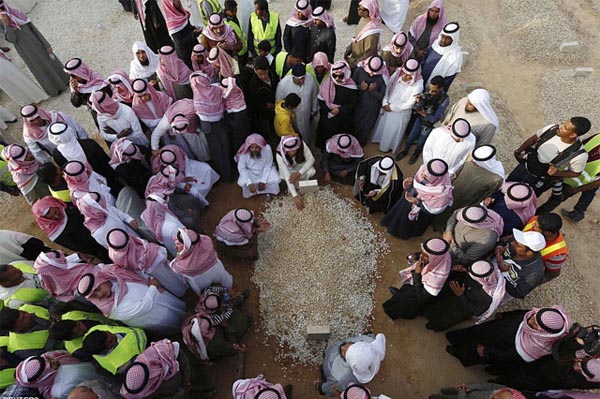King Abdullah was replaced by his half-brother Salman, who moved quickly to consolidate his hold on power and vowed to maintain a steady course for the Kingdom.
Riyadh — Saudi Arabia buried the Custodian of the Two Holy Mosques King Abdullah bin Abdulaziz of Saudi Arabia on Friday as foreign leaders gathered in the capital for the funeral of the ruler of the world’s top oil exporter.
King Abdullah was replaced by his half-brother Salman, who moved quickly to consolidate his hold on power and vowed to maintain a steady course for the Kingdom.
Salman joined rulers and world leaders for a funeral service at Imam Turki Bin Abdullah Grand Mosque in Riyadh.
King Abdullah’s shrouded body was borne on a simple litter by members of the royal family wearing traditional red-and-white checked shemagh head gear.
The body was quickly moved to nearby Al Od public cemetery where it was buried.
Another of the late monarch’s half-brothers, Moqren, was named crown prince.
In his first public statement as the new ruler, 79-year-old King Salman vowed to “remain, with God’s strength, attached to the straight path that this state has walked since its establishment”.
He called in televised remarks for “unity and solidarity” among Muslims and vowed to work in “the defence of the causes of our nation”.
Moving quickly to clear uncertainty over the transition to the next generation, Salman named the interior minister, Prince Mohammed bin Nayef, as second in line to the throne.
He also appointed and one of his own sons, Prince Mohammed, as defence minister.
Officials did not disclose the cause of Late King Abdullah’s death, but the late king had been hospitalised in December suffering from pneumonia and had been breathing with the aid of a tube.
President Barac Obama was quick to pay tribute to Abdullah as a “valued” ally.
“The closeness and strength of the partnership between our two countries is part of Late King Abdullah’s legacy,” Obama said in a statement shortly after the monarch’s death.
Vice President Joe Biden said on Twitter he would lead a delegation to Saudi Arabia “to pay respect and offer condolences”.
Other tributes came in from foreign leaders, with French President Francois Hollande hailing Late King Abdullah as “a statesman whose work profoundly marked the history of his country”.
British Prime Minister David Cameron said he was “deeply saddened” and that Late King Abdullah would be remembered for “his commitment to peace and for strengthening understanding between faiths.”
As the top producer in the Organisation of Petroleum Exporting Countries, Saudi Arabia has been the driving force behind the cartel’s refusal to slash output to support oil prices, which have fallen by more than 50 per cent since June.
But prices surged on Friday, amid uncertainty over whether the new king would maintain that policy.
The International Energy Agency’s chief economist said he did not foresee major policy shifts.
“I do not expect any significant change in the oil policy of Saudi Arabia and I expect and hope that they will continue to be a stabilisation factor in the oil markets,” Fatih Birol said in Davos, Switzerland.
Egypt declared seven days of official mourning for Abdullah.
Salman is widely expected to follow closely in Abdullah’s footsteps, in foreign and energy policy as well as in making moderate reforms to the deeply conservative kingdom.
Late King Abdullah pushed through cautious changes while in power, challenging conservatives with moves such as including women in the Shura Council, an advisory body.
He promoted the kingdom’s economic development and oversaw its accession to the World Trade Organisation, tapping into the country’s massive oil wealth to build new cities, universities and high-speed railways.
Salman is a stalwart of the royal family credited with transforming Riyadh from a backwater to a thriving capital during his half-century as governor.
Since the death in 1952 of the Kingdom’s founder, King Abdul Aziz bin Saud, the throne has passed systematically from one of his sons to another.
Abdul Aziz had 45 recorded sons. Abdullah, Salman and Moqren were all born to different mothers.
Saudi Arabia has managed to avoid the social upheaval that has shaken many of its neighbours in recent years, thanks in large part to massive public spending.
But the new king will face some major challenges, especially as falling oil prices cut into state revenues.


